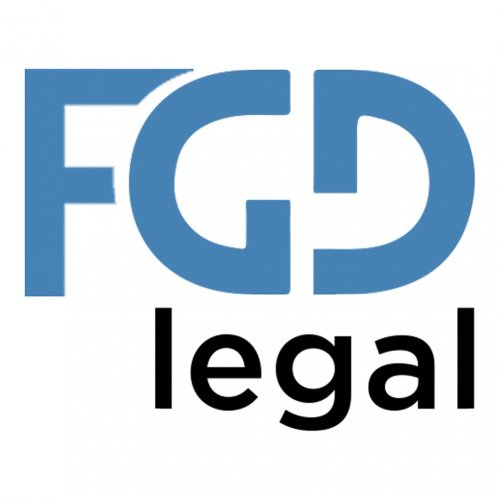Best Tax Increment Financing Lawyers in Chile
Share your needs with us, get contacted by law firms.
Free. Takes 2 min.
Or refine your search by selecting a city:
List of the best lawyers in Chile
About Tax Increment Financing Law in Chile
Tax Increment Financing (TIF) is an urban renewal strategy that has recently gained traction in Chile. It allows municipalities to invest in public infrastructure and community development by earmarking future property tax revenues generated by the increase in property values. The essence of TIF in Chile is to foster economic development and revitalize urban areas without imposing additional tax burdens. It is particularly utilized in areas that might not attract private investment independently.
Why You May Need a Lawyer
Engaging in Tax Increment Financing projects can be complex and may involve various legal and financial considerations. Here are some common situations where you might require legal assistance:
- Understanding the intricacies of TIF agreements and negotiating terms with municipalities.
- Navigating the regulatory landscape and ensuring compliance with applicable laws.
- Assistance with the financial management and structuring of TIF funds.
- Resolving disputes that may arise between stakeholders involved in TIF projects.
- Managing risks and liabilities associated with development projects funded by TIF.
Local Laws Overview
In Chile, the implementation of Tax Increment Financing is governed by multiple statutes that dictate how these financial instruments can be used. Here are some key aspects of Chilean laws relevant to TIF:
- Municipal Participation: Municipalities play a critical role in TIF as they have the authority to designate TIF districts and approve project plans.
- Approval Process: The establishment of a TIF district requires approval from both local government bodies and affected communities.
- Use of Incremental Taxes: The principle involves capturing future increases in property tax revenues for project funding, necessitating accurate projections and analyses.
- Project Eligibility: Projects typically must align with broader urban development goals and demonstrate potential economic benefits.
Frequently Asked Questions
What is the purpose of Tax Increment Financing?
TIF aims to stimulate economic development, particularly in underdeveloped areas, by leveraging future tax revenues to finance immediate infrastructure improvements.
Who can initiate a TIF project in Chile?
Both public entities such as municipalities and private developers can propose TIF projects, although initiation often requires cooperation between these entities.
What types of projects can TIF support?
TIF can support a wide range of projects, including infrastructure improvements, residential and commercial development, and environmental remediation.
How is a TIF district created?
A TIF district is created through a proposal process that involves feasibility studies, community consultation, and approval by local government authorities.
Can existing property owners object to TIF districts?
Yes, property owners within the proposed TIF district can participate in hearings and express concerns about the project and its impacts.
What happens if a TIF project doesn't generate expected tax increments?
If expected tax increments are not realized, the shortfall could impact the project's financial viability and may require restructuring or renegotiation of terms.
What are the risks associated with TIF for developers?
Developers face risks such as fluctuating property values, changing economic conditions, and potential community opposition which could affect project outcomes.
How are TIF funds managed?
TIF funds are typically managed by municipalities or designated administrative bodies that ensure funds are used appropriately and in line with project goals.
Is TIF the same in all parts of Chile?
While the core principles of TIF remain consistent, the implementation can vary by locality based on specific regulations and community needs.
Are TIF projects subject to public review?
Yes, TIF projects are usually subject to public review processes, which may include public hearings and consultations to ensure transparency and community engagement.
Additional Resources
For individuals seeking legal advice or further information on Tax Increment Financing in Chile, the following resources may be helpful:
- Municipal Government Offices: These offices can provide detailed guidelines and application procedures for TIF projects in respective localities.
- Chilean Ministry of Housing and Urban Development: Offers resources and policy information on urban development, including TIF initiatives.
- Legal and Financial Consulting Firms: Specialists in TIF can provide tailored advice and project management services.
- Chilean Institute of Urbanism Studies: An academic body that conducts research and publishes reports on urban financing tools.
Next Steps
If you need legal assistance in navigating the complexities of Tax Increment Financing in Chile, consider taking the following steps:
- Research: Begin by gathering as much information as possible about TIF and your local area's approach to these projects.
- Consult with Experts: Seek advice from legal professionals or consultants experienced in municipal finance and urban development.
- Prepare Documentation: Gather all necessary documentation, such as property details, project plans, and financial assessments, before consulting with a lawyer.
- Engage in Dialogue: Communicate with relevant government bodies to understand specific requirements and opportunities for public-private collaboration in TIF projects.
- Evaluate Options: Work with your legal advisor to evaluate various structuring options and identify potential risks and benefits to your involvement in a TIF project.
Lawzana helps you find the best lawyers and law firms in Chile through a curated and pre-screened list of qualified legal professionals. Our platform offers rankings and detailed profiles of attorneys and law firms, allowing you to compare based on practice areas, including Tax Increment Financing, experience, and client feedback.
Each profile includes a description of the firm's areas of practice, client reviews, team members and partners, year of establishment, spoken languages, office locations, contact information, social media presence, and any published articles or resources. Most firms on our platform speak English and are experienced in both local and international legal matters.
Get a quote from top-rated law firms in Chile — quickly, securely, and without unnecessary hassle.
Disclaimer:
The information provided on this page is for general informational purposes only and does not constitute legal advice. While we strive to ensure the accuracy and relevance of the content, legal information may change over time, and interpretations of the law can vary. You should always consult with a qualified legal professional for advice specific to your situation.
We disclaim all liability for actions taken or not taken based on the content of this page. If you believe any information is incorrect or outdated, please contact us, and we will review and update it where appropriate.
Browse tax increment financing law firms by city in Chile
Refine your search by selecting a city.















